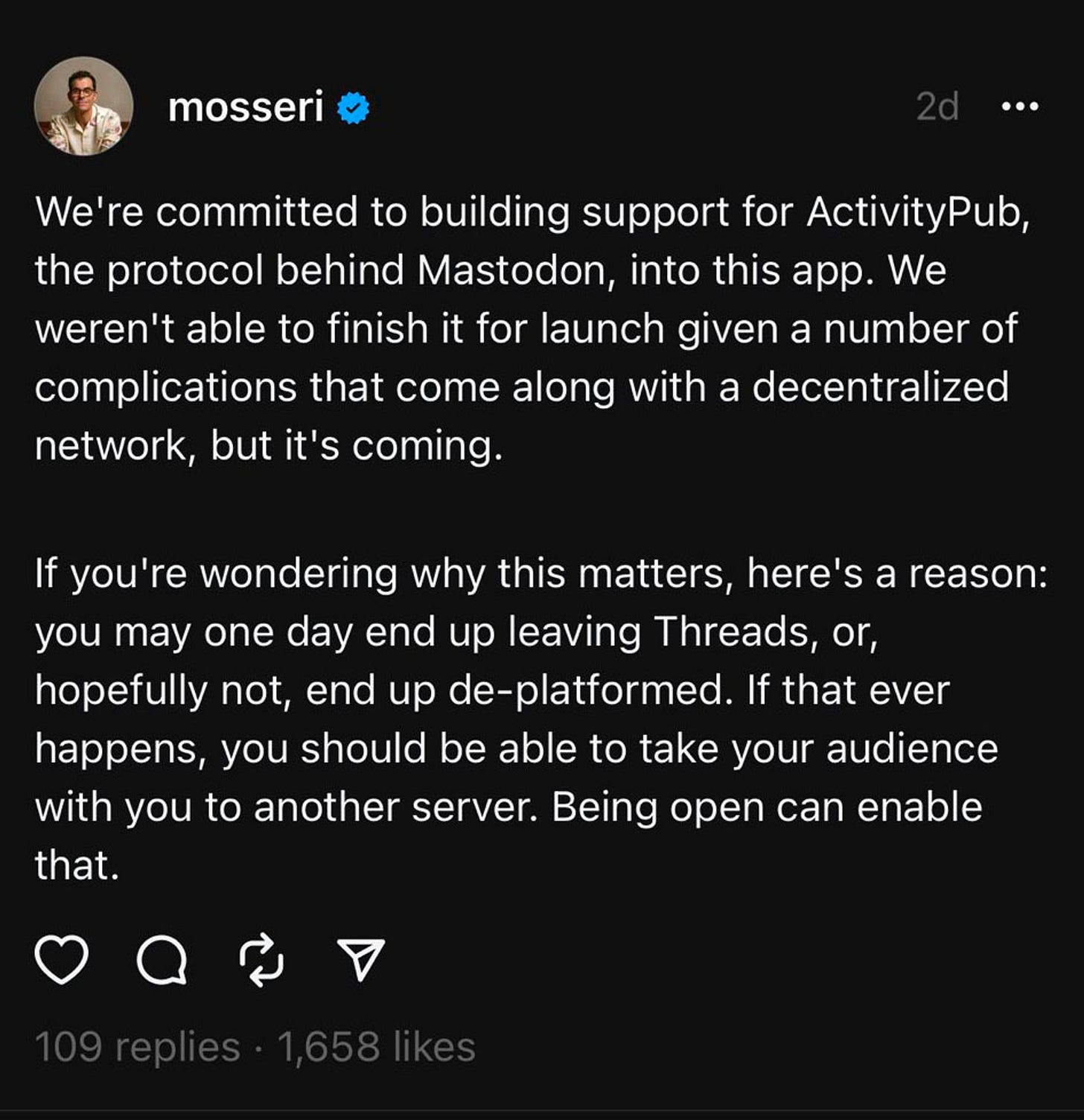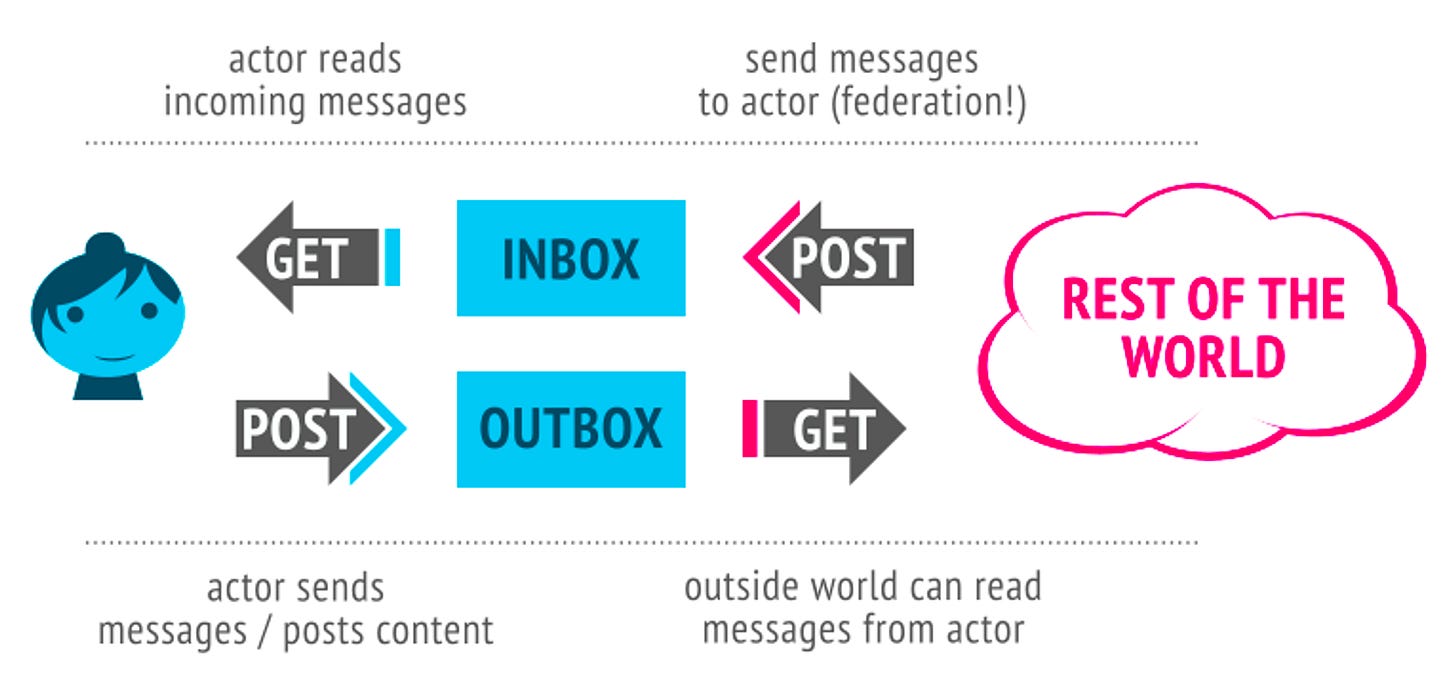Instagram Threads kills Web3 Social
ActivityPub is better than blockchain for decentralized social
As you know if you’ve been on the internet since Wednesday, Instagram has launched Threads, its Twitter-clone. By all metrics, the launch has gone amazingly well: 70 million signups one day after launch. With the continued influx of Instagram users, it’s likely that Threads could overtake Twitter at some point in the near future. But with all this ‘web2’ hype, where does it leave web3 social?
In my opinion, all web3 social Twitter clones are dead. There is no reason for blockchain-backed social to exist when a large-scale ActivityPub client exists.
ActivityPub is better than blockchain for decentralized social
The self-professed goal of web3 social is “ownership over your data”. By using the permission-less blockchain as a database, projects like Lens and DeSo can put social graphs on-chain to make sure they can be accessed from anywhere. Largely, the value proposition is data portability: if one platform isn’t serving your needs anymore, you can switch, without losing your followers. The data portability is also good from an innovation perspective, as new clients can be built from the existing datastore.

However, the blockchain is only one tool for decentralization. After all, we’ve had decentralized, peer-to-peer services since the dawn of the internet (remember torrenting websites like Limewire?). Threads has promised to embrace ActivityPub, a decentralized social networking protocol that has been around since 2018. Notably, ActivityPub has nothing to do with blockchains but still makes the same guarantees about data portability and ownership.
Rather than using a blockchain for data storage, ActivityPub uses server federation to achieve decentralization. I choose my own server, and you choose your own server. I can then change my chosen server (and front-end client), while retaining the ability to reach you all, my followers. Even better, the data that is stored on my server is always under my control. I can decide to delete it, move it, and I decide who can read from it by sending messages to other servers as my activity on the social network happens.
The problem for web3 social is that ActivityPub accomplishes data ownership better than the blockchain. There is no reason for blockchain-backed social to exist when a large-scale ActivityPub client exists. The main reasons are:
ActivityPub allows deletion. You can never delete anything from a blockchain.
ActivityPub has built in-privacy controls (you can’t look into arbitrary servers). Conversely, everything is public on the blockchain—no privacy by default.
Blockchains are bad at data storage. DeSo had to build an entirely new chain just to deal with state management in social networks. Activity pub uses tried-and-true web2 database technologies which can scale as much as needed.
Blockchains still have a bad user experience. To use web3 social, I need to sign up for a wallet, manage my private keys and learn about a whole new world. To use ActivityPub and Threads, I just sign in with my Instagram account.
So in summary:
Threads is more consumer friendly than the blockchain;
Threads has an advantage in distribution and user acquisition compared to web3;
Threads promise of ActivityPub means it’s better at delivering on the promises of decentralized social media.
Where do web3 builders go from here?
Let’s use the blockchain for what it is uniquely good at: creative attribution. At Seam, we're working towards building a marketplace that rewards memes, design, and curation. Connect with us at getseam.xyz — I’m excited to talk about all things future of social.




